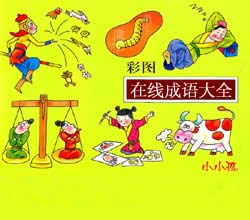英文读后感-《汤姆索亚历险记》读后感
I believe that one of the factors that makes a piece of literature or even a movie a masterpiece is how well the reader can relate to the story. This is definitely a book everyone can relate to.
The Adventures of Tom Sawyer is a literary masterpieces, written in 1876 by the famous author Mark Twain. Tom Sawyer is a mischievous young boy who lives in the small town on the Mississippi River called St. Petersburg. The story line is simple, the book reads like a biography or a memoir of a summer in Tom Sawyer's life.
Tom Sawyer seems to be the precursor of and the template for misfit kids such as Dennis the Menace, Malcolm in the Middle, and Calvin and Hobbs. What makes this story great is that Tom Sawyer represents everything that is great about childhood. The book is filled with Tom's adventures playing pirates and war with his friend Joe Harper. Tom has a trusted friend, Huck Finn, who few of the adults approve of. The book is filled with ideas of how the world works, such as how pirates and robbers work, that are so innocent, they could only come from a child. It is a story filled with action, adventure, ingenious ideas, love, and schoolyard politics. The whole story is seemingly a complication of what people did or wish they did during their childhood.
The book is a little difficult to read at first. Personally, it takes me a little while to get used to the 19th century dialect in the book. Other than referring to persons of African decent in derogatory terms (which I'm sure uses terms even young children already know), the book would be an enjoyable read for people of all ages. I highly recommend this book for anyone looking to feel young again, if just for a few hundred pages.
相关作文: 我的妈妈、我的坏爸爸、开心的回忆、描写火龙果、危险的马路、放大镜里的发现、观海、描写美丽的桃花作文200字、父亲的菜园、快乐星期三热门作文成语素材
- 哀感顽艳 原意是指内容凄切,文辞华丽,使愚笨和聪慧的人同样受感动。后多用来指艳情的小说、戏曲、电影中的感人情节。
- 黯然销魂 黯然:心怀沮丧、面色难看的样子;销魂:灵魂离开肉体。心怀沮丧得好象丢了魂似的。形容非常悲伤或愁苦。
- 风不鸣条 和风轻拂,树枝不发出声响。比喻社会安定。
- 分茅裂土 原指古代帝王分封诸侯时举行的仪式。后称分封诸侯。
- 飞沙走砾 沙:沙土;砾:小石块。沙土飞扬,小石块滚动。形容风势很猛。
- 诽誉在俗 诽:指诽谤;誉:赞扬;俗:风气、习惯。诽谤或赞扬在于当时的风习。后来引申指风气、习惯的作用非常大。
- 奔逸绝尘 奔逸:疾驰;绝尘:脚不沾尘土。形容走得极快。也形容人才十分出众,无人企及。
- 本来面目 原为佛家语,指人的本性。后多比喻事物原来的模样。
- 匕鬯不惊 匕:古代的一种勺子;鬯:香酒;匕和鬯都是古代宗庙祭祀用物。形容军纪严明,所到之处,百姓安居,宗庙祭祀,照常进行。
- 挨肩擦背 形容人多拥挤。
- 飞黄腾达 飞黄:传说中神马名;腾达:上升,引伸为发迹,宦途得意。形容骏马奔腾飞驰。比喻骤然得志,官职升得很快。
- 病病歪歪 形容病体衰弱无力的样子。
- 肥马轻裘 裘:皮衣。骑肥壮的马,穿轻暖的皮衣。形容阔绰。
- 不揣冒昧 用于没有慎重考虑就轻率行事的客气话。
- 不齿于人 指被人看不起。
